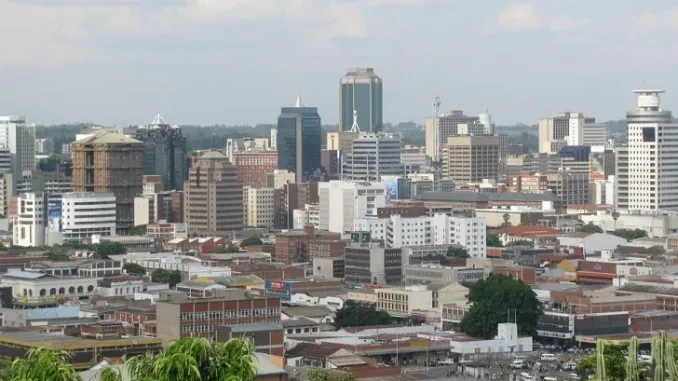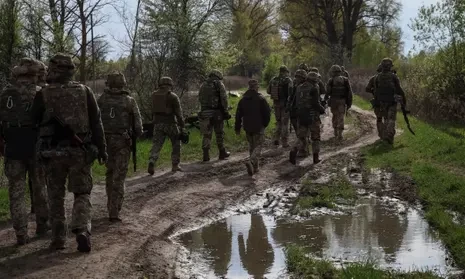
A group of both young male and female artistes armed with hoes, axes and machetes is spotted clearing trees and grass at Chitsvuku Hills in Goromonzi. The sweltering heat of the summer sun does not deter them from conducting their work.
by Jairos Saunyama
No one knows what they are up to until one asks them: and this is the story of a passionate rural art group that dreams of making history in the country and beyond borders.
Award-winning rural traditional dance group Ngoma Dzepasi is making history in their rural home of Goromonzi as the group is set to turn a village hill into a state-of-the-art multi-cultural centre, but this desire is decided by one thing, money.
The reigning Chibuku Neshamwari Traditional Dance Festival champions, popularly known for their Jerusarema/Mbende dance antics, has proved beyond reasonable doubt that they have a passion of art development despite being located in a rural set up.
NewsDay visited the Alfred Chiyangwa-led group in their rural Chikwaka Village where the group opened up on their passion to develop arts in the rural areas through construction of a multi-million arts center on top of a hill.
With the group perhaps operating without a bank account, NewsDay witnessed how the ensemble has used manual labour and all that they have to develop the area.
“There is no money, but the passion and land is there. We cannot wait for donors or any form of assistance. We need a lot of money to have this project done, but we cannot force things,” said Chiyangwa well known as Mambo Mukuvapasi.
- Chamisa under fire over US$120K donation
- Mavhunga puts DeMbare into Chibuku quarterfinals
- Pension funds bet on Cabora Bassa oilfields
- Councils defy govt fire tender directive
Keep Reading
For their efforts in promoting arts and culture in their rural home of Goromonzi, Ngoma Dzepasi has been allocated four hectares in Chikwaka Village by their traditional leaders to establish a multi-purpose cultural center.
The land is a hill and Newsday at the weekend witnessed the group working using manual tools to clear the area. A stage at the peak of the hill has been constructed while a 2km road that connects the hill from the outside world has been already established.
Without any money, the concept of constructing the big arts centre has become the talk of the area with fellow villagers in absolute admiration while others have been questioning the group members’ capability.
If completed, then history will be written in Zimbabwe as it will be the biggest ever culture centre within a rural set up.
“It’s a difficult journey but we will get there one day, we just need sponsorship so that we will construct this culture centre. We were given land by the local headman and the community is supporting us.”
“We have done what we are capable of doing. Money or no money this place will be written in local history books. As you can see ground work has been done. We have cleared a 2km long dust road and also cleared the stage as well,” said Chiyangwa.
The hill, now named Dzimwe RaGutu in Goromonzi, is now the new home for the group who now hold their rehearsals at the top of the hill.
“This is our culture center and a place that we call our own. We do our rehearsals on top of this hill. At first villagers were surprised but they are now coming to watch some of our sessions.”
“Coincidentally the hill is also sacred as it was used as a meeting place or dare by our forefathers. They would consult spirit mediums here hence we are happy to preserve our culture and honor our ancestors through constructing a culture centre,” said Chiyangwa.
NewsDay had also the chance to glean the construction plan for the arts project produced by the group, and it was indeed clear that they mean serious business.
On the far left foot of the hill will be changing rooms while a 7 000-seater auditorium will be constructed at the southern part of the hill. The auditorium will be just below the stage constructed at the peak of the hill. The other side, just behind the mountain has been pegged for offices and accommodation for visiting artists.
Ngoma Dzepasi started from humble beginnings. The group was formed in 2006 and by then they would play for sadza at Comoil at Bhora/Juru Growth Point. The group then relocated to Mutare where they got a slot at Pungwe Brewery Bar in return for 20 litres of Pungwe opaque beer. They, however, made a name for themselves and were recognised by National Arts Council of Zimbabwe who promoted them. However, the group returned to Mashonaland East in 2010 after their stay in Manicaland turned sour because of economic hardships.
The road to stardom was not all rosy for the ensemble had to exhaust their resources to come out with a comprehensive act that landed them the top spot at Harare Gardens last year. They were crowned Mashonaland East winners in 2010 during their first appearance in the Chibuku Neshamwari dance competitions.
They, however, lost during the national finals in 2010 before going back to the drawing board. They regrouped and practiced for three years before entering the competitions again in 2014.
Ngoma Dzepasi were crowned Chibuku Neshamwari Traditional Dance Competitions 2014 after shrugging off stiff competition from nine other groups drawn from ll the country’s provinces.
For taking first position, the Mashonaland East cultural group walked away with $4 000.
“We now have a junior policy. We are training primary school students from Goromonzi area and we do train them at Dzimwe RaGutu,” he said.
Despite being a group that hails from a rural set up, Ngoma Dzepasi is an affiliate member of National Training and Conferences of the Arts in Zimbabwe (NATCAZ), the two have collaborated in training primary schoolchildren on the Mbende/Jerusarema form. The dance has been nominated to be the theme traditional dance form for the next two years (starting 2013) by the National Arts Council of Zimbabwe, with competitions being held at district, provincial and national level.
With the determination of an athlete, the group members hope that one day a Good Samaritan will rise and help them realising their dream. “We have contributed much to the art industry in Zimbabwe and believe that responsible authorities will honor us with one thing, to help us construct this art centre at the top of the hill.
“We are a rural group but we have the capacity to go far and do big things,” said Chiyangwa.











